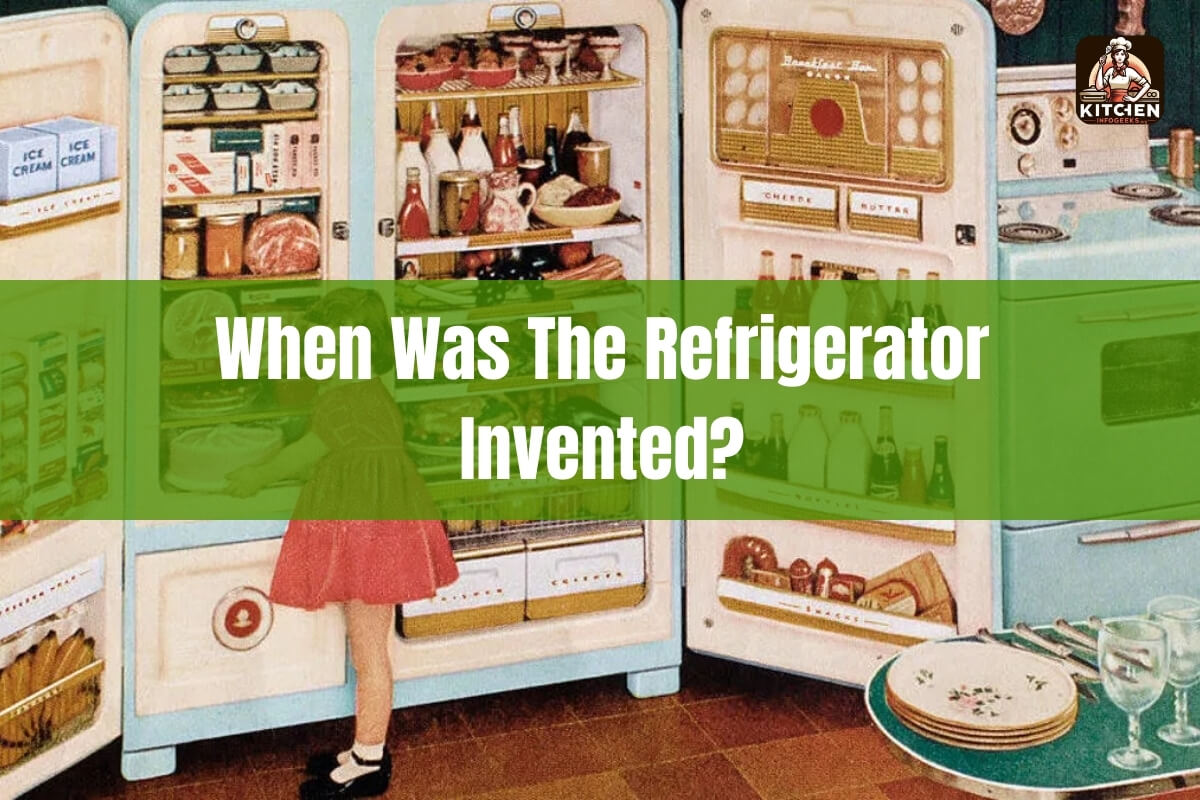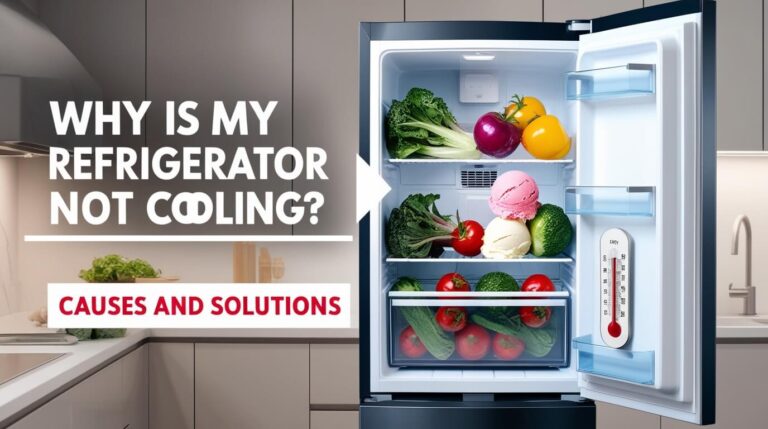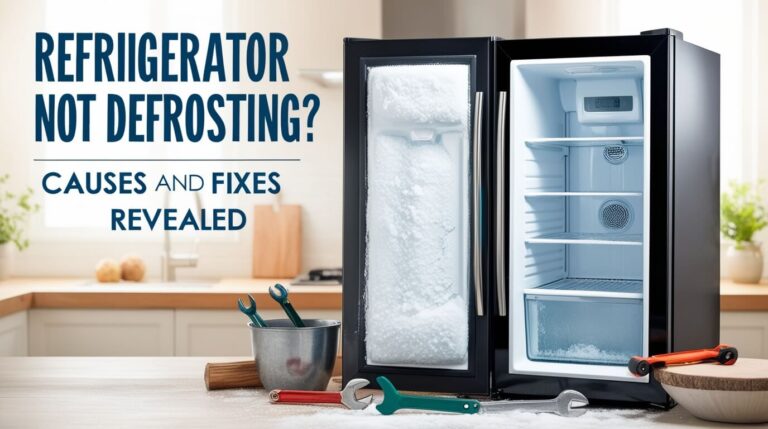
The modern refrigerator as we know it today was first introduced in the early 20th century, with the development of the first practical home electric refrigerator in 1927. However, the history of refrigeration and cooling technology dates back thousands of years, with various ancient civilizations using innovative methods to preserve perishable foods.
In this comprehensive article, we’ll explore the fascinating journey of the refrigerator, from its ancient origins to the cutting-edge smart appliances of the modern era. We’ll delve into the key inventors and innovations that shaped the evolution of refrigeration technology, as well as the significant impact refrigerators have had on our daily lives, culinary practices, and even global economies.
Ancient Cooling Methods Before Refrigeration
Long before the invention of the modern refrigerator, human societies were already employing ingenious methods to keep food and drinks cool. These ancient cooling techniques were often heavily reliant on natural resources and environmental conditions.
Ice Houses and Cold Cellars
One of the earliest forms of food preservation was the use of ice houses and cold cellars. Ancient civilizations, such as those in China, Egypt, Greece, and Rome, discovered that storing food in underground pits or insulated structures could help maintain lower temperatures and extend the shelf life of perishable items.
In China, for example, people began cutting and storing ice as early as 1000 BCE. The ice was often harvested from lakes and rivers during the winter months and then used to cool food and beverages throughout the year. Similarly, the Egyptians and Indians utilized the cooling effects of evaporation by leaving earthenware pots outside during cold nights, allowing condensation to form and provide a natural refrigerating effect.
Iceboxes and Early Refrigeration Techniques
As technology advanced, the concept of the icebox emerged as a more practical way to store and cool food. These early refrigeration devices consisted of insulated wooden or metal cabinets with a compartment for holding a block of ice. The ice would slowly melt, and the cold air would circulate through the box, keeping the contents cool.
The first commercially successful iceboxes were introduced in the mid-1800s, and they quickly became a staple in many households. These iceboxes required regular deliveries of ice blocks, which were harvested from frozen lakes and rivers and then transported to homes and businesses.
The Invention of the Modern Refrigerator
While the ancient cooling methods were effective, they were often labor-intensive and limited in their ability to maintain consistent temperatures. It wasn’t until the 19th and early 20th centuries that the foundations for the modern refrigerator were laid through the work of various inventors and scientists.
Early Pioneers and Experiments in Refrigeration
One of the earliest pioneers in the field of refrigeration was Scottish physician and professor William Cullen, who in 1748 demonstrated the cooling effects of rapidly evaporating a liquid into a gas. This concept, known as the vapor-compression refrigeration cycle, would later become the basis for modern refrigeration technology.
In the early 1800s, American inventor Oliver Evans and English scientist Michael Faraday made significant contributions to the development of refrigeration systems. Evans designed a blueprint for a refrigeration machine in 1805, while Faraday discovered the ability to liquefy gases, which would prove crucial in the evolution of refrigeration technology.
Key Inventors and Innovations
The modern refrigerator as we know it today can trace its origins to the work of several key inventors in the 19th and early 20th centuries. In 1834, American engineer Jacob Perkins patented the first practical vapor-compression refrigeration system, which used liquid ammonia as the refrigerant.
In the late 1800s, German professor Carl von Linde further refined the process of liquefying gases, leading to the development of more efficient and practical refrigeration systems. These advancements paved the way for the widespread commercial use of refrigeration, particularly in industries such as brewing and meatpacking.
The First Electric Home Refrigerators
The transition from commercial to domestic refrigeration came in the early 20th century. In 1913, American inventor Fred W. Wolf introduced the first home electric refrigerator, which featured a refrigeration unit mounted on top of an insulated icebox. This design, known as the “Monitor-Top” refrigerator, was a significant step forward in making refrigeration technology more accessible to households.
However, the early refrigerators often used toxic gases like ammonia, methyl chloride, and sulfur dioxide as refrigerants, leading to several fatal accidents in the 1920s. In response, three American corporations collaborated to develop a less dangerous method of refrigeration, which ultimately led to the discovery of Freon, a safer and more efficient refrigerant.
The Adoption and Impact of Refrigeration Technology
As refrigeration technology became more reliable, efficient, and affordable, the adoption of refrigerators in homes and businesses accelerated rapidly. This transformation had a profound impact on various aspects of society, from food preservation and culinary practices to shopping habits and global trade.
Transitioning from Iceboxes to Refrigerators
The transition from iceboxes to modern refrigerators was not an abrupt or uniform process. Initially, refrigerators were considered luxury items, accessible primarily to affluent households and commercial entities. As the technology advanced and became more affordable, the prevalence of iceboxes containing natural ice began to decline.
By the late 1920s, refrigerators started to gain widespread popularity in private homes, and their adoption accelerated further in the 1930s with the introduction of Freon, a safer alternative to the toxic gases previously used in refrigeration systems.
Factors Driving the Widespread Use of Refrigerators
Several factors contributed to the increasing adoption of refrigerators in households and businesses:
- Technological Advancements: Improvements in insulation, compressor technology, and manufacturing processes made refrigerators more compact, efficient, and cost-effective.
- Affordability and Accessibility: Mass production and an expanding consumer market helped to make refrigerators more affordable and accessible to a wider range of households.
- Cultural and Social Influences: The ability to preserve and chill food altered dietary habits, culinary practices, and shopping behaviors, ultimately becoming integrated into daily life and societal norms.
How Refrigerators Transformed Lifestyles and Societies
The introduction and widespread adoption of refrigerators had a profound impact on various aspects of society and daily life:
- Food Preservation and Safety: Refrigerators significantly improved the ability to safely store and preserve perishable foods, leading to a more diverse and nutritious diet and reducing the risk of foodborne illnesses.
- Culinary Practices: The capacity to store and preserve a wider range of ingredients expanded culinary horizons, allowing for the exploration of new recipes and the incorporation of global flavors into home cooking.
- Shopping and Eating Habits: Refrigerators enabled weekly or monthly grocery shopping, as well as the stocking of perishable goods, providing greater flexibility and convenience in food consumption.
- Economic Development: Refrigeration technology transformed industries related to transportation, retail, and food, facilitating the globalization of trade and access to non-native produce and goods.
The Continued Evolution of Refrigerator Design and Technology
The refrigerator’s journey did not end with the introduction of the first practical home models. Advancements in design, energy efficiency, and smart features have continually reshaped the way we interact with and utilize these essential household appliances.
Improvements in Energy Efficiency and Sustainability
As environmental concerns and the need for energy conservation have grown, the refrigerator industry has focused on developing more energy-efficient models. Advancements in insulation, compressor technology, and the use of eco-friendly refrigerants have helped to reduce the appliance’s energy consumption and environmental impact.
The introduction of energy-efficiency rating systems, such as ENERGY STAR, has further incentivized manufacturers to engineer refrigerators that meet stringent energy-saving standards, guiding consumers towards more sustainable choices.
Smart Refrigerators and Internet of Things Integration
The advent of smart home technology has also transformed the refrigerator, turning it into an interconnected hub of intelligence. Modern refrigerators often feature touch screens, internet connectivity, and advanced features like automatic defrosting, temperature monitoring, and even integration with other smart devices in the home.
These smart refrigerators can provide users with real-time information about their food inventory, suggest recipes based on available ingredients, and even automatically place orders for replenishing depleted items. The integration of the refrigerator with the Internet of Things (IoT) has opened up new possibilities for improving food management, reducing waste, and enhancing the overall user experience.
Future Innovations in Refrigeration
As we look to the future, the refrigerator industry continues to explore innovative solutions to address evolving environmental concerns and consumer needs. Concepts like the “Zero-Energy Bio Refrigerator,” which uses a cooling gel to suspend and chill food without the need for electricity, showcase the potential for even more sustainable and eco-friendly refrigeration technology.
Additionally, advancements in materials science, compressor design, and intelligent controls are likely to lead to refrigerators that are even more energy-efficient, user-friendly, and capable of adapting to the changing demands of modern households.
Conclusion – The Lasting Legacy of the Refrigerator
The refrigerator’s journey, from its ancient origins to the cutting-edge smart appliances of today, is a testament to the ingenuity and perseverance of human innovation. This humble household appliance has profoundly shaped the way we store, prepare, and consume food, fundamentally transforming our culinary habits, shopping behaviors, and even global trade.
As we continue to explore new frontiers in refrigeration technology, the refrigerator’s legacy as a essential tool for food preservation and a catalyst for societal change will undoubtedly endure. The refrigerator’s story is not just about the evolution of a single appliance, but a reflection of our collective drive to harness the power of science and technology to improve our daily lives and safeguard the sustainability of our planet.






